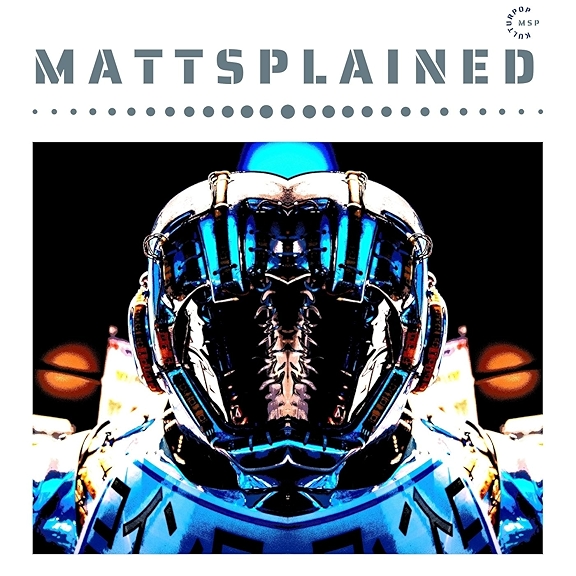Jul 20 2023
Weird Science: Dating Surveys, Green Screens, Glitter And Loneliness
What do exit surveys for exes, a global glitter shortage, red coloured green screens and the brain patterns of lonely people have in common? They’re all extremely weird.Hosted by Matt Armitage & Richard BradburyProduced by Richard Bradbury for BFM89.9Introduction:Welcome to another episode of Mattsplained, where we delve into the weird and wonderful happenings of the week. From unusual physics stories to dating trends and scientific discoveries, this week's roundup is filled with intriguing topics. Join us as we explore the world of glitter shortages, AI press conferences, and the effects of loneliness on the brain.Weirding Out and Stealth Physics:On this episode of Mattsplained, Richard Bradbury and Matt Armitage dive into the concept of "weirding out." They discuss how last week's episode focused on stealth weirding, where they disguised a physics-centered story behind a captivating narrative. Matt reveals his intention to cover various topics in more depth, including AI, CRISPR, UFOs, working trends, and relationship exit interviews.Dating Exit Interviews:Matt introduces a growing trend inspired by a TikTok meme involving sending surveys to potential dates before meeting them. This trend aims to set expectations and avoid wasting time on incompatible matches. However, it also brings up concerns about the transactional nature of dating and the potential consequences of gathering personal information before a first meeting.Netflix's Magenta Green Screen:Matt shifts gears to discuss Netflix's invention of a new green screen technology called Magenta Green Screen. Unlike traditional green screens, this new system utilizes red and blue LEDs to create a magenta hue, allowing for more accurate background composition and real-time visualization during film shoots.Foreign Students and AI Detection:Matt explores the implications of AI detection tools in academia and how they may unfairly flag non-native English speakers as generating machine-written content. Stanford University's study revealed that AI detection tools identified essays written by non-native English speakers as AI-generated in 90% of cases. This bias can have adverse effects on foreign students' work and perpetuate systemic biases.The Global Glitter Shortage Conspiracy:Matt brings attention to the conspiracy theory surrounding a global glitter shortage. This theory arises due to two New Jersey-based companies, Glitterex and Meadowbrook Inventions, which produce the majority of the world's glitter. With Glitterex's undisclosed major customer and the various speculated uses of glitter, the environmental impact and need for its regulation are being questioned.Loneliness and its Impact on the Brain:Exploring the psychological aspect, Matt discusses a study conducted at USC Dornrife that examined the brain processes of lonely individuals. The study found that lonely individuals processed information differently from non-lonely individuals, suggesting that their thought patterns deviated from communal norms. This research sheds light on the experience of loneliness and its potential neurological implications.Conclusion:In this week's episode of Mattsplained, we uncovered a wide range of intriguing topics, from dating exit interviews and Netflix's Magenta Green Screen to AI detection biases and the impact of loneliness on the brain. These stories demonstrate the diverse and ever-evolving nature of our world. As we navigate through unconventional trends, scientific advancements, and social phenomena, it's essential to remain open-minded and adaptable to the changes that come our way.Further Reading:





